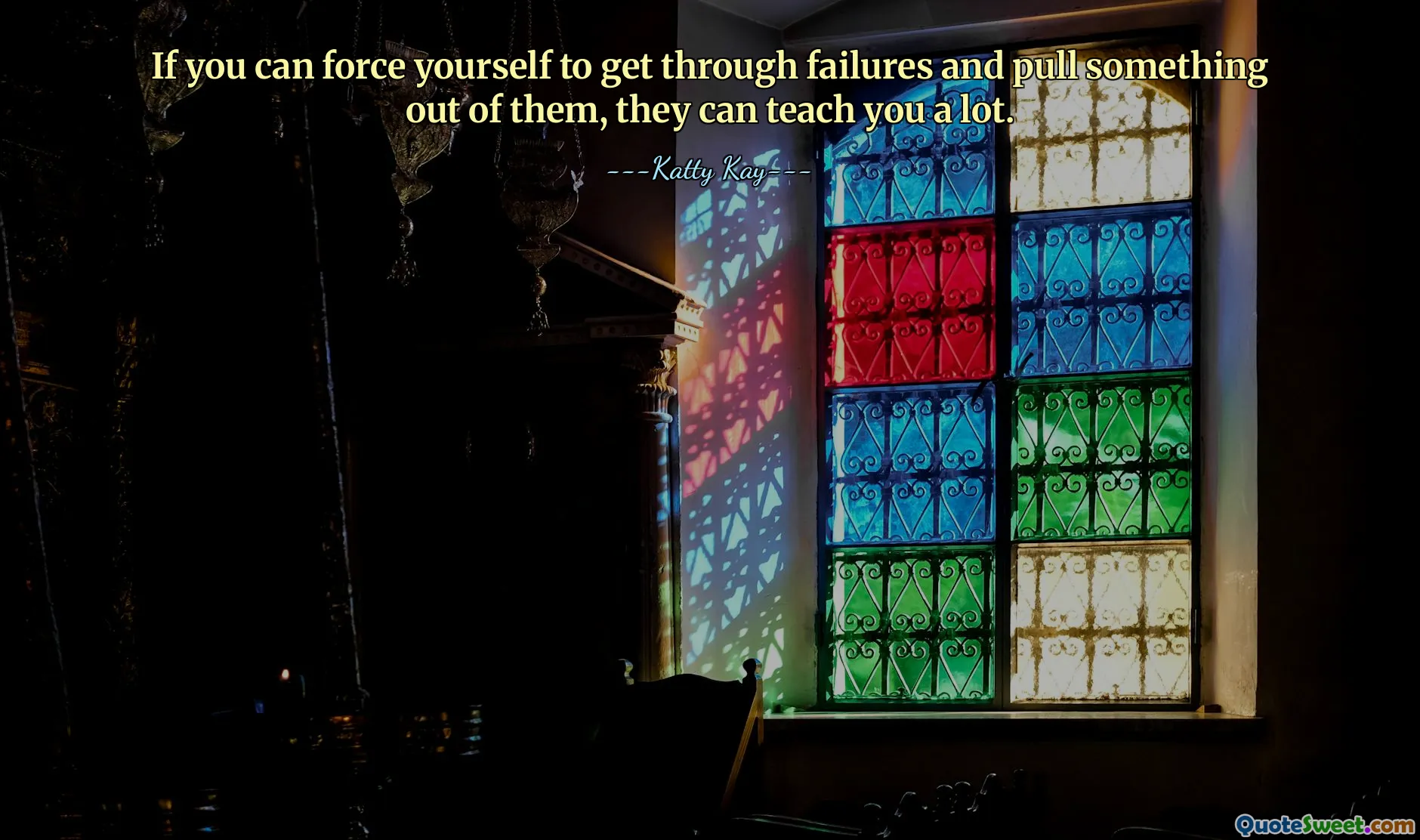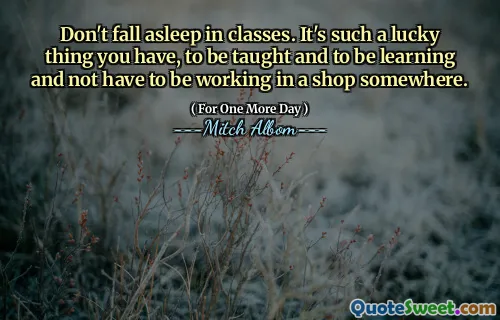
If you can force yourself to get through failures and pull something out of them, they can teach you a lot.
The essence of this quote emphasizes resilience and the growth mindset—key traits that enable individuals to transform setbacks into valuable learning experiences. Often, failure is perceived negatively, as an endpoint or a sign of incapability. However, this perspective misses a crucial point: failures are not just dead ends but rather opportunities for reflection and improvement. When we push ourselves to persevere despite setbacks, we develop a deeper understanding of our limitations, strengths, and areas for growth. This process encourages a mindset of continual learning and adaptability.
By actively seeking lessons in failure, we foster mental toughness and resilience, qualities vital for long-term success. It suggests that perseverance and the willingness to extract lessons from mistakes can significantly accelerate personal and professional growth. This approach aligns with famous growth mindsets championed by psychologists like Carol Dweck, who argue that viewing challenges as opportunities fosters development.
Furthermore, the ability to 'force' oneself through disappointing moments demonstrates discipline and grit—traits that are often what separate successful individuals from those who give up prematurely. Reflection on failures also cultivates humility and self-awareness, prompting us to reassess and refine our strategies. Ultimately, this approach transforms setbacks from sources of despair into sources of empowerment and insight, paving the way for future accomplishments.
Understanding and embracing the lessons embedded within failures can shift our perspective dramatically. Instead of fearing failure or withdrawing from challenges, we begin to anticipate the potential growth they offer, which can prove to be one of life's most valuable lessons. This mindset fuels resilience, encourages continuous improvement, and fosters a proactive attitude towards personal development.











